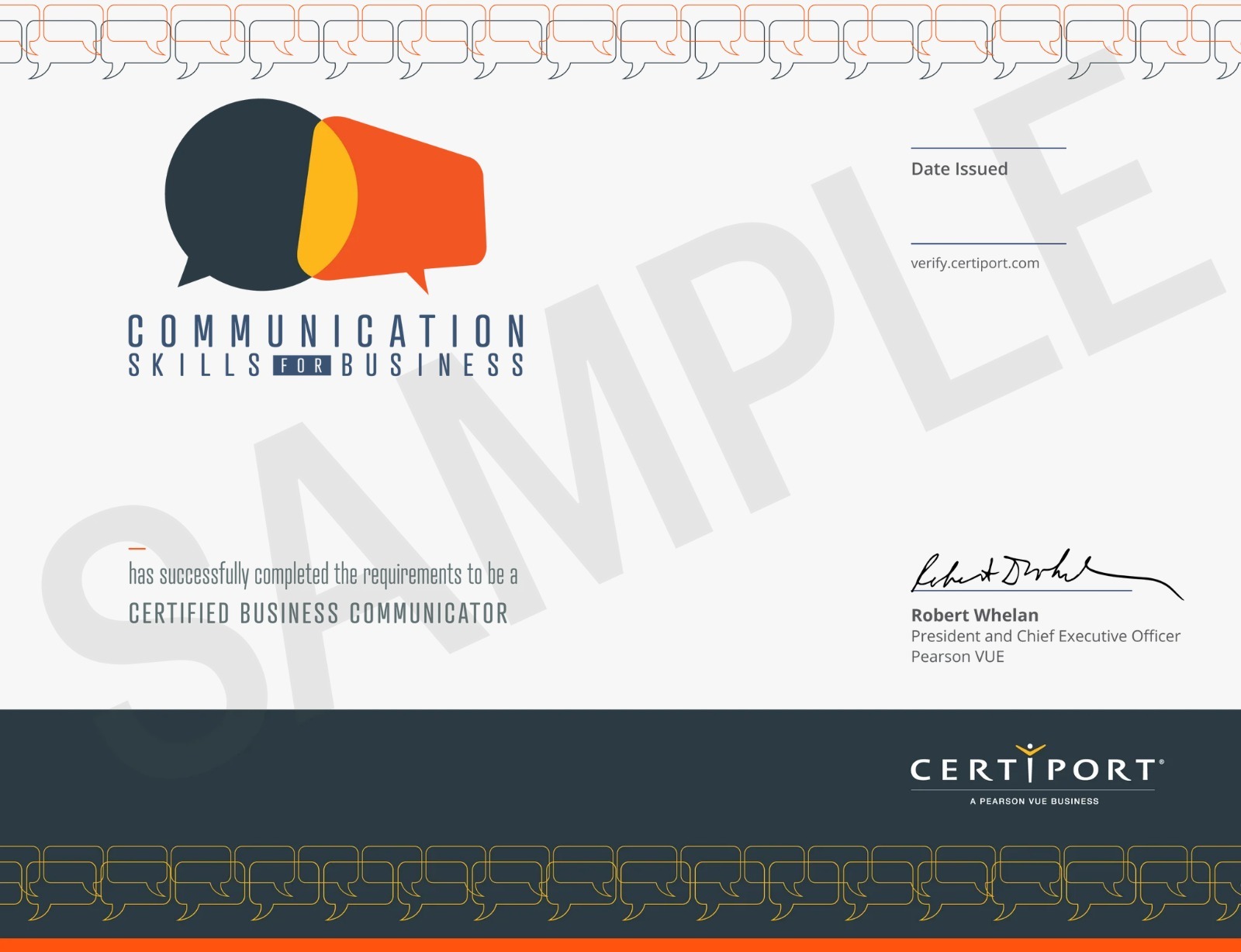COMMUNICATION SKILLS FOR BUSINESS
Description
Communication skills for business encompass a wide range of abilities essential for effective interaction and collaboration within a professional environment. Here's a detailed description:
Verbal Communication: The ability to articulate thoughts and ideas clearly and effectively through spoken words is crucial. This includes being concise, using appropriate language for the audience, and speaking confidently.
Nonverbal Communication: Body language, facial expressions, gestures, and posture contribute significantly to how messages are received and interpreted. Being aware of and using nonverbal cues effectively can enhance understanding and convey professionalism.
Listening Skills: Active listening involves not only hearing what others say but also understanding their perspectives, asking relevant questions, and providing appropriate feedback. Good listeners create a supportive and respectful atmosphere in business interactions.
Written Communication: Writing skills are essential for crafting clear and concise emails, reports, proposals, and other business documents. Clarity, coherence, and professionalism in written communication are crucial for conveying ideas and information accurately.
Interpersonal Skills: Building and maintaining relationships with colleagues, clients, and stakeholders require interpersonal skills such as empathy, conflict resolution, and diplomacy. These skills enable effective teamwork, negotiation, and collaboration.
Presentation Skills: The ability to deliver engaging and informative presentations to diverse audiences is vital in business settings. Effective presenters use visual aids, structure their content logically, and engage their audience through storytelling and interactive elements.
Negotiation and Persuasion: Business communication often involves negotiating terms, resolving conflicts, and persuading others to adopt certain viewpoints or take specific actions. These skills require clarity, assertiveness, and the ability to build consensus.
Cross-cultural Communication: In a globalized business environment, understanding and respecting cultural differences in communication styles, norms, and etiquette are essential. Adapting communication strategies to accommodate cultural diversity fosters effective international business relationships.
Digital Communication: Proficiency in using digital communication tools such as email, instant messaging, video conferencing, and collaboration platforms is crucial for remote work and virtual team environments. Understanding digital etiquette and cybersecurity practices is also important.
Feedback and Adaptability: Being open to receiving feedback, providing constructive feedback to others, and adapting communication strategies based on feedback and situational context are key to continuous improvement and effective communication in dynamic business environments.
Effective communication skills are not only about conveying information but also about building trust, fostering relationships, and achieving shared goals in business. Developing and honing these skills can significantly enhance professional success and contribute to organizational growth and effectiveness.

Offered by CERTIPORT
Authorized Partner

- Due: 19 Jul 2026
- Type: Training & Test
- Category: Business and Management
